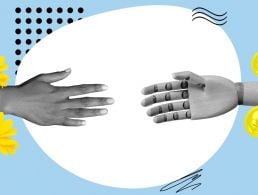UPDATE: IBM has sold its PC division to China’s Lenovo Group for a reported US$1.75bn. Lenovo, the largest PC maker in China and Asia, will become the world’s third-largest PC business, after Dell and Hewlett-Packard (HP) with revenues of approximately US$12bn and volume sales of 11.9 million units.
As part of the deal, Lenovo and IBM will enter a broad-based strategic alliance in which IBM will be the preferred services and customer financing provider to Lenovo, while Lenovo will be the preferred supplier of PCs to IBM, enabling IBM to offer a full range of personal computing solutions to its enterprise and small and medium business clients.
IBM will hold 18.9pc of the new merged company which would have had combined 2003 PC revenues of US$12bn. Lenovo will be allowed to use the IBM brand for five years and its eventual plan is to sell PCs as Lenovo ThinkPads. Some 9,500 IBM employees will transfer and the new operation will be headed by current IBM senior vice president, Stephen Ward.
IBM was midwife to the birth of the personal computer business when it introduced the industry’s first PC in 1981. It is understood Big Blue wanted to sell its PC business in order to focus on the more lucrative corporate server and computing services businesses.
The company has seen its PC market share fall over the past number of years. According to industry figures from Gartner, it had 5pc of the worldwide PC market last year, compared with Dell on 14.7pc and HP on 14.1pc.
Ironically, Gartner estimated that IBM actually grew its market share for the first nine months of this year. By the end of the third quarter Big Blue had 5.2pc of the worldwide PC market.
Commenting on the news, Ovum senior analyst Douglas Hayward noted that IBM wants to move up the value chain. “[IBM] sees its future in higher end consultancy and IT services as well as the higher value hardware and software products, which appeal to its core corporate customers,” he said in a briefing note.
“The price paid – at just 15pc of the division’s revenues – might look a bit bargain basement. But given that its PC operations contributed 13pc of revenues but less than 1pc of its profits, IBM’s profit margins will be considerably improved.” Hayward pointed out that many of IBM’s IT services customers source their PCs from a range of suppliers anyway.
“By way of this deal, IBM gets its name on the desktops of the world’s fastest growing and potentially largest IT market – China. Seems like a win-win situation to us,” he added.
Referring to IBM rival HP’s persistence in keeping its own PC arm, Hayward said that Ovum had “severe doubts” about this strategy and said that the latest developments called into question the wisdom of having a services and a commodity hardware business within one company. “In today’s market place you are either an Accenture or a Dell. It’s just become even more difficult to justify being both.”
By Brian Skelly and Gordon Smith






